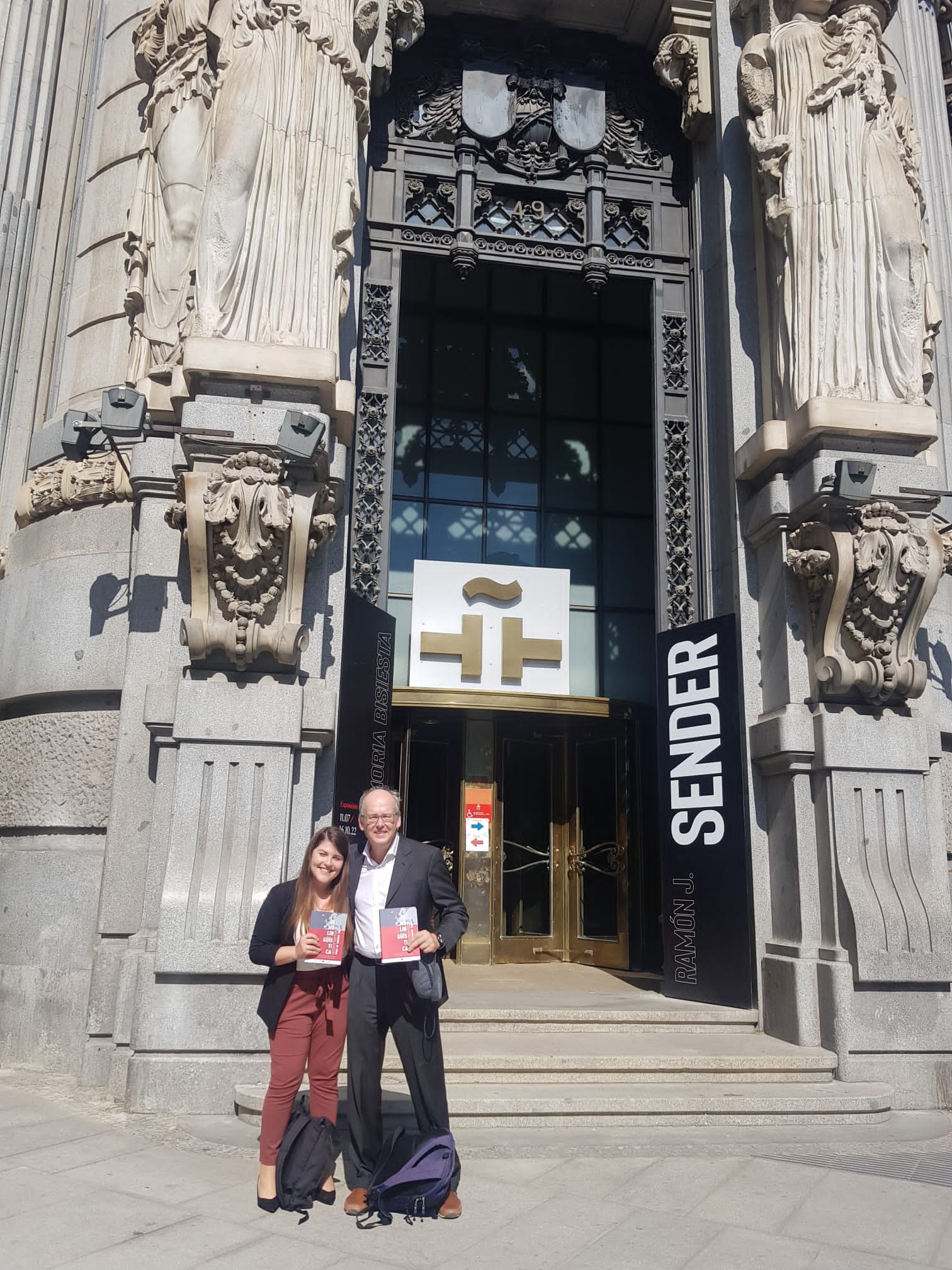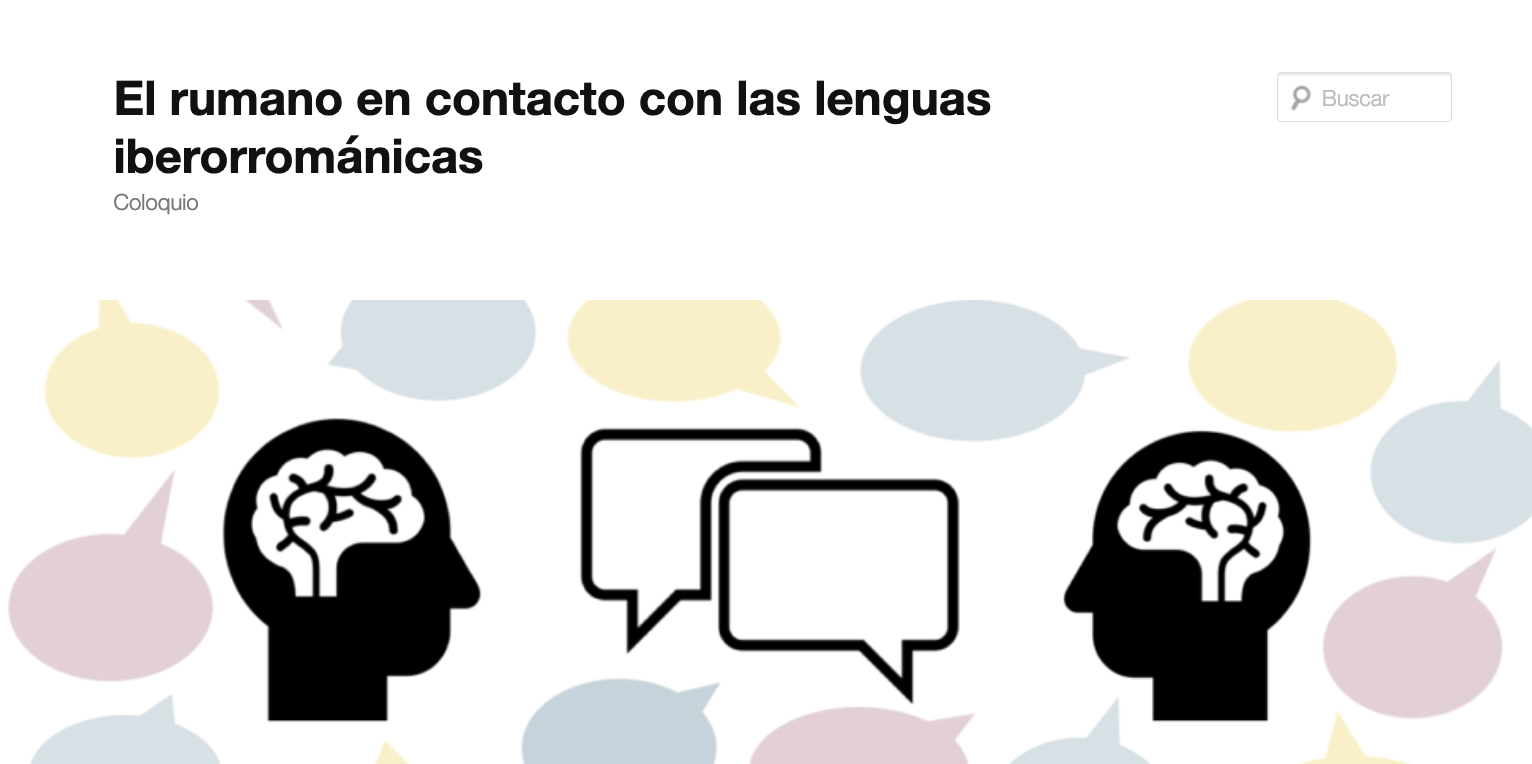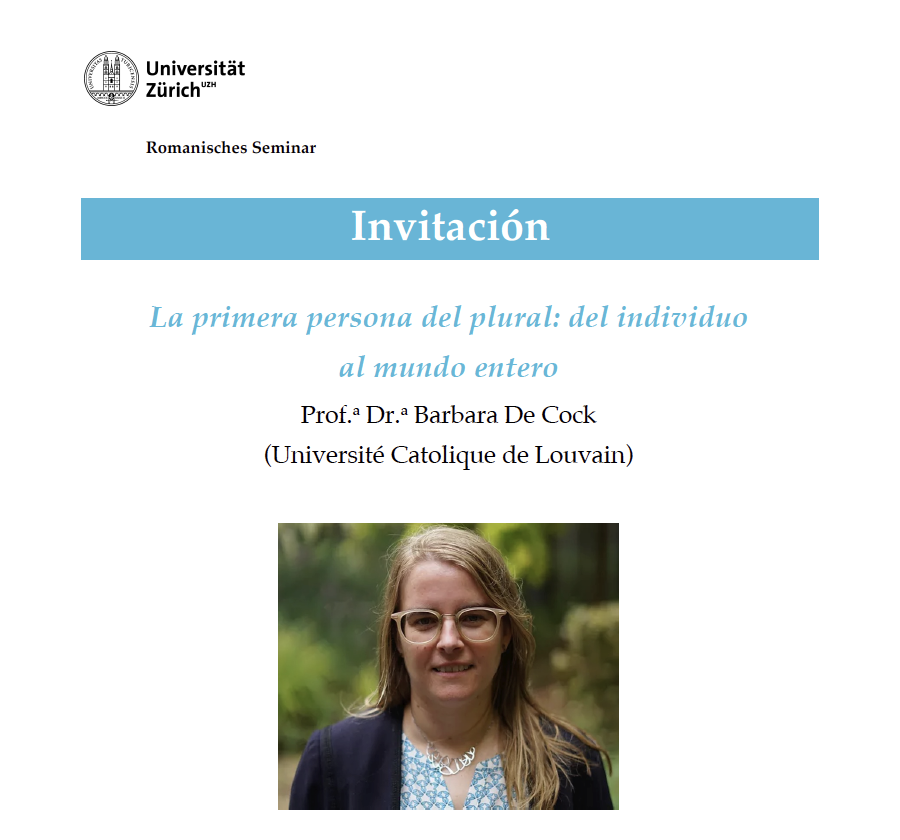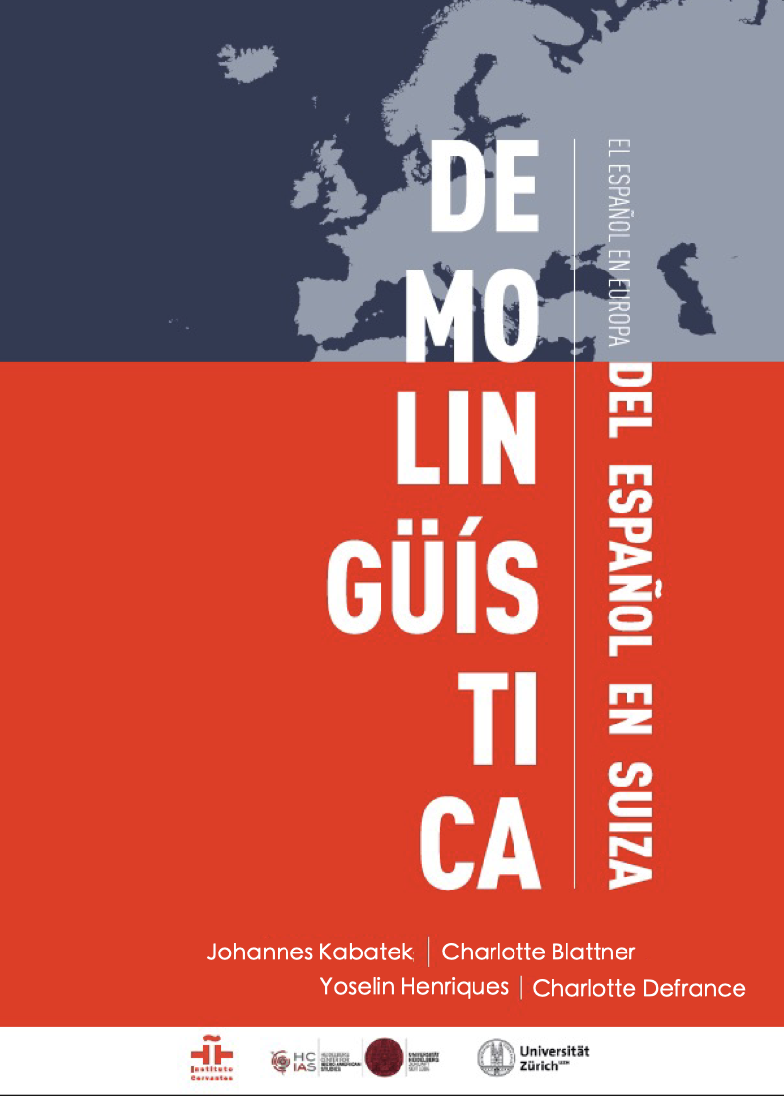Yoselin Henriques Pestana
Assistentin für Iberoromanische Sprachwissenschaft (Prof. Dr. J. Kabatek)

Romanisches Seminar
Zürichbergstrasse 8
CH - 8032 Zürich
Büro ZUG G 61
Projekt: «The personal impersonality: first person plural marking in rural Madeiran Portuguese varieties»
As inherently social beings, we humans deeply value our connections to others, forming identities anchored in these relationships. This fundamental aspect of our nature is reflected in human languages, which have evolved various tools to express our collective experiences. Among these tools are person markers for the first person plural (1PL), which not only designate a specific group but also, intriguingly, can refer to unspecific groups and even to human beings in general, as so-called impersonalising strategies.
In my PhD thesis, I explore this fascinating intersection of impersonalising and referential functions of 1PL subject-verb agreement in Romance languages. Prime examples of elements that have emerged from this intersection are the French pronoun “on” (derived from Latin HOMO, meaning 'man' or 'person'), and the Portuguese “a gente” (literally, 'the people'), both of which serve as 1PL markers in various contexts.
Focusing on rural varieties of Madeiran Portuguese, my research examines the unique usage of the impersonal marker “se”, commonly found in passive and impersonal constructions across different Romance languages. For instance, the phrase “Em Portugal come-se bem” translates to “One eats well in Portugal,” where “se” marks impersonality. However, in Madeiran Portuguese, this “se” exhibits new functions which overlap with other 1PL markers like the subject pronouns “nós” and “a gente”, and the 1PL suffix “-mos”, presenting a compelling case of grammatical change.
The core data for my study stems from semi-structured interviews with native speakers from rural Madeira, collected during extensive fieldwork. By adopting a sociolinguistic framework, I analyse how these 1PL markers vary across different linguistic and extralinguistic factors, such as verb semantics (especially ‘agentivity’), tense, aspect, mood, the age of the speaker, and their level of education.
Profile
Beyond the academic, my journey into linguistics was inspired by my multilingual upbringing in Venezuela and Switzerland, countries to which my Portuguese parents migrated. This rich linguistic environment sparked my passion for languages early on, leading me to pursue a PhD in Linguistics, here at the University of Zurich.
My academic path includes a Master’s degree in Ibero-Romance Linguistics and Literature and French Linguistics, and my collaboration in the project “Beyond Structuralism“ under Professor Johannes Kabatek, funded by the Swiss National Science Foundation (SNSF). As part of this project, the COSERIU ONLINE web archive was created.
Additionally, I am a member of the editorial team for the academic journal Energeia, and my research interests span morphosyntactic variation in Ibero-Romance, the history of linguistics, demolinguistics, and migration linguistics.
Publications
ZORA Publikationsliste
Download-Optionen
Publikationen
-
2025
-
Buchkapitel
-
As múltiplas caras da primeira pessoa do plural: entre indexicalidade e generecidade In: Bleortu, Cristina; De Benito Moreno, Carlota; Gerards, David; Obrist, Philipp; Octavio de Toledo y Huerta, Álvaro Sebastián; Wall, Albert . Discursos tradicionales y particulares. Festschrift für Johannes Kabatek zum 60. Geburtstag. Madrid: Iberoamericana Vervuert, 313-318.
-
-
-
2023
-
Artikel in wissenschaftlicher Zeitschrift
-
Evolución de la lengua española Energeia, VIII:166-333.
-
-
-
2022
-
Buchkapitel
-
Personal uses of impersonalizing strategies: Hybrid constructions with a gente and se in rural Madeiran Portuguese Varieties In: Posio, Pekka; Herbeck, Peter . Referring to discourse participants in Ibero-Romance languages. Berlin: Language Science Press, 149-176.
-
-
Herausgeberschaft eines wissenschaftlichen Werks
-
Energeia: Online journal for linguistics, language philosophy and history of linguistics Edited by: Kabatek, Johannes; Bleortu, Cristina; Henriques Pestana, Yoselin (2022). Zürich: Universität Zürich, Romanisches Seminar.
-
-
Monografie
-
Demolingüística del español en Suiza, con un anexo sobre el español en Liechtenstein Madrid: Intituto Cervantes.
-
-
Presentación del libro "Demolingüística del español en Suiza" en el Instituto Cervantes de Madrid el 21.09.2022

COLOQUIO FS23 – "El rumano en contacto con las lenguas iberorrománicas"

En este coloquio se propone dar visibilidad a la investigación actual del contacto lingüístico entre el rumano y las lenguas iberorrománicas en la península ibérica. Asimismo, se quiere crear un espacio de discusión libre entre investigadores expertos e investigadores jóvenes pensado para facilitar el intercambio de ideas y el debate de cuestiones recurrentes en el estudio del contacto lingüístico.
Para más información sobre este coloquio, consulte este enlace.
Fechas importantes:
- Plazo de envío de propuestas: 01.02.2023
- Notificación de contribuciones aceptadas: 01.03.2023
- Publicación del programa: 01.04.2023
- Fecha del coloquio: 28.04.2023
CALL FOR PAPERS
Las propuestas (en español) deberán tener una extensión máxima de 350 palabras y ser mandadas en formato PDF o Word hasta el 01 de febrero de 2023 a contactorumanoespanol@gmail.com
Organización: Cristina Bleorțu, Senta Zeugin, Yoselin Henriques Pestana
CONFERENCIA HS22 – "La primera persona del plural: del individuo al mundo entero", Prof. Barbara de Cock (Université Catolique de Louvain)

Lunes, 31 de octubre de 2022, 10:15h
SOE-F-11, Schönberggasse 11, 8001 Zürich
y por Zoom
https://uzh.zoom.us/j/65639587398?pwd=TWJWcThDR1g5WE9heEVzdG82STZUQT09
Meeting ID: 656 3958 7398
Passcode: 617639
M.A. Yoselin Henriques Pestana
Prof. Dr. Johannes Kabatek, Prof.a Dr.a Carlota de Benito Moreno
Prof. Dr. Thomas Klinkert, Seminarvorsteher



.png)